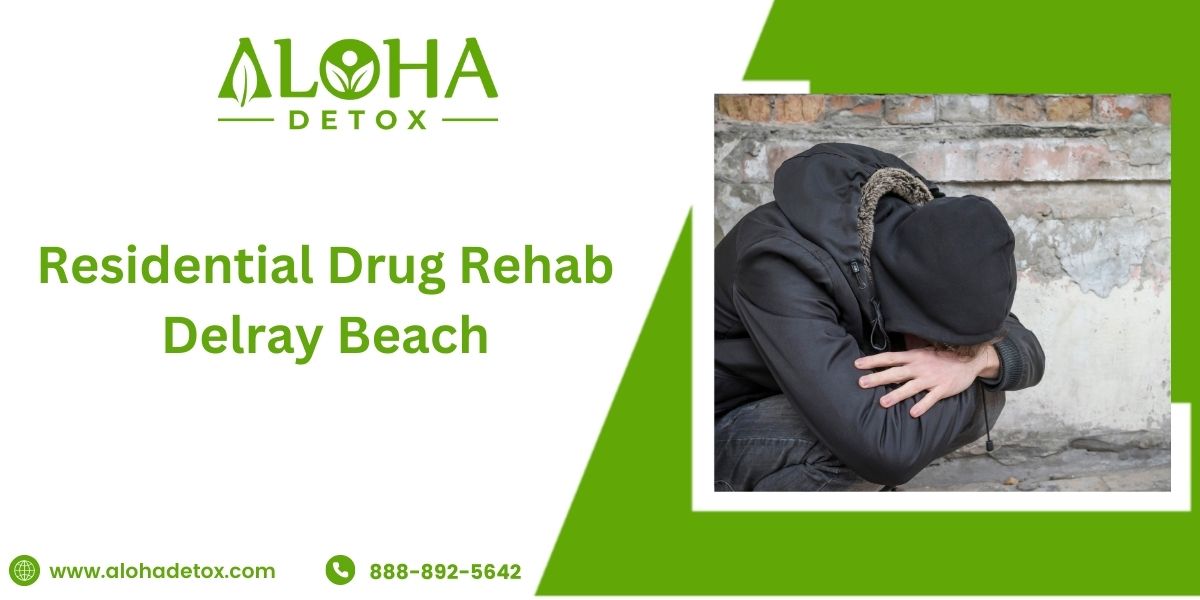
Strategies for Maintaining Sobriety After Residential Drug Rehab in Delray Beach
Residential Drug Rehab Delray Beach – Every step that a person takes toward recovery from drug abuse is a win. This is true throughout the entire process of recovery. A crucial milestone in this journey is reaching the completion of a drug rehabilitation program. However, it is essential to understand that the road to sobriety does not end there. The period following treatment is usually the most challenging, as people return to their regular lives when triggers and temptations abound.
According to the findings of studies, between 65% and 70 % of the people who are in recovery experience at least one relapse within the first 90 days of treatment. This statistic highlights how essential it is to establish effective measures to sustain sobriety after completing the Residential Drug Rehab Delray Beach program.
Identifying Triggers and Developing Coping Mechanisms – Residential Drug Rehab Delray Beach
Avoiding a relapse is one of the main things that everybody should know about, and this can only be done by understanding and identifying triggers. People, places, emotions, or situations that may lead to drug and alcohol use are called triggers. Residential Drug Rehab Delray Beach provides therapy sessions where individuals can learn about their triggers. This helps them in developing coping mechanisms for overcoming these circumstances better.
Building a Support Network
Recovery is a process that an individual would not embark on alone. One way to have a successful rehabilitation period is to have support networks. This can consist of family members, friends, and sponsor groups, among others, who provide moral support as well as responsibility. Apart from participating in group therapy sessions and alumni programs at Residential Drug Rehab Delray Beach Center, individuals are encouraged to connect with others who are on a similar path. These connections can offer invaluable support and camaraderie, reinforcing the commitment to sobriety.
Practicing Self-Care
Recovering individuals have to embrace some aspects of self-care that enable them to improve their welfare and minimize the possibility of having a relapse. This involves doing certain things or having certain habits that tend to promote good health. Engaging in regular physical exercises, consuming balanced diets, practicing mindfulness or meditation, and getting enough sleep are all aspects of self-care.
Avoiding High-Risk Situations
Maintaining sobriety requires identifying warning signs for an impending relapse and avoiding such situations. This may involve not frequenting places where substance abuse is taking place or getting rid of linkages with negative people who affect one’s prospects towards recovery. Proactively staying away from high-risk situations will protect an individual’s sobriety, thereby keeping them focused on their objectives regarding rehabilitation.
Continuing Therapy and Aftercare Services
Recovery is a long-term procedure that demands constant endeavor and commitment. After finishing the Residential Drug Rehab Delray Beach program, it is crucial to remain linked with supportive resources and services. Aloha Detox provides extensive aftercare programs suited to personalized clients’ needs, such as ongoing counseling, relapse prevention planning, and community resource access. Continuous involvement in therapy and aftercare helps individuals strengthen their recovery skills and stay on course to long-lasting sobriety.
Conclusion
In the process of recovery, conquering relapses is a significant challenge, but it is possible to maintain sobriety and live a fulfilling life without substance abuse if one uses appropriate approaches and gets the necessary support. At Aloha Detox, we know how complicated addiction can be. That’s why we are dedicated to helping people achieve lasting recuperation.
Our comprehensive Residential Drug Rehab Delray Beach programs, caring personnel, and holistic approach to treatment all enable our patients to embrace sobriety, leading them towards renewed healthiness. If your loved one or you are currently struggling with drug use issues, do not hesitate at all since we will guide you through the first step of living without substances.
